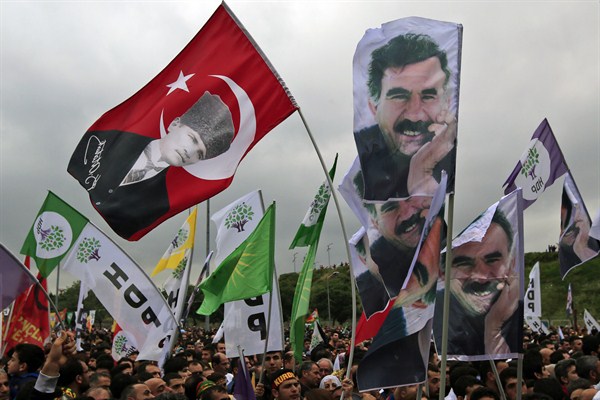They had predicted success with breezy self-confidence, but even the leaders of the Kurdish-rooted Peoples’ Democratic Party (HDP) were likely surprised by their historic gains in Turkey’s parliamentary elections earlier this month. Sweeping 13 percent of the national vote, the HDP became the first majority-Kurdish party to formally enter parliament in Turkish history, pushing beyond the 10 percent election threshold that had forced Kurds to field independent candidates in elections past. For HDP voters, victory seemed all the sweeter given the blow it delivered to President Recep Tayyip Erdogan, whose ruling Justice and Development Party (AKP) failed to secure a parliamentary majority for the first time in 12 years.
Branding the HDP an alliance of gays, Armenian spies, Zoroastrians and atheists, Erodgan had hoped to lock the party out of parliament and sweep up its seats. That would have given him the 330 deputies he needed to bypass a popular referendum on an amended constitution that was to transform Turkey’s parliamentary system into a strengthened presidential one, with few checks and balances and Erdogan at the top. Once-loyal Kurdish voters had recoiled at Erdogan’s campaign, compounding broader desertions by AKP voters over Turkey’s sluggish economy and concern over Erdogan’s increasingly heavy-handed agenda.
But while the HDP savors the upset delivered to Turkey’s mercurial president, its campaign to legally advance Kurdish and minority rights will prove more difficult than ever. Turkey now faces weeks of turbulent jockeying as the AKP moves to form a coalition government, which is highly unlikely to grant concessions to Kurds. The HDP has vowed not to enter into any coalition with the AKP, citing Erdogan’s authoritarian ambitions and his about-face on negotiations with Kurdish insurgents.

